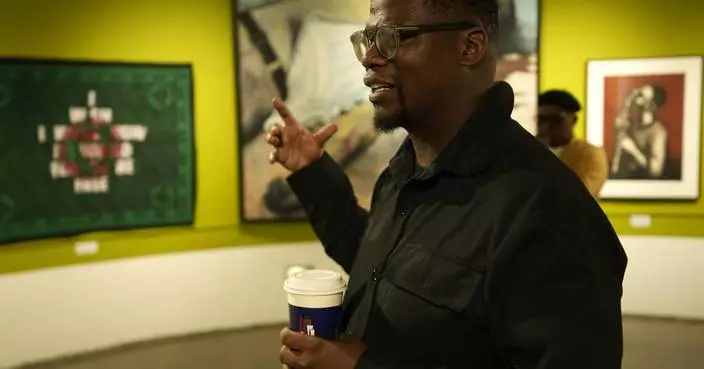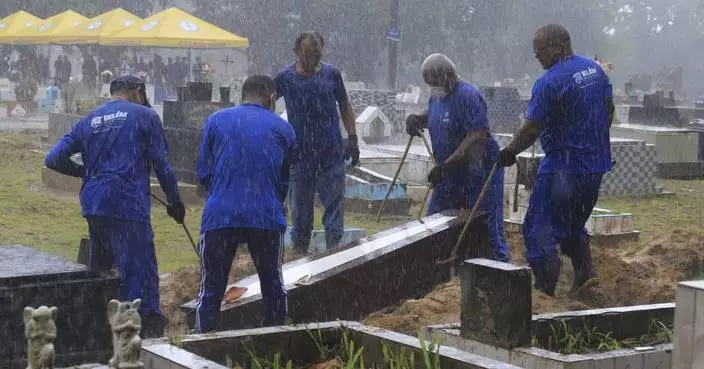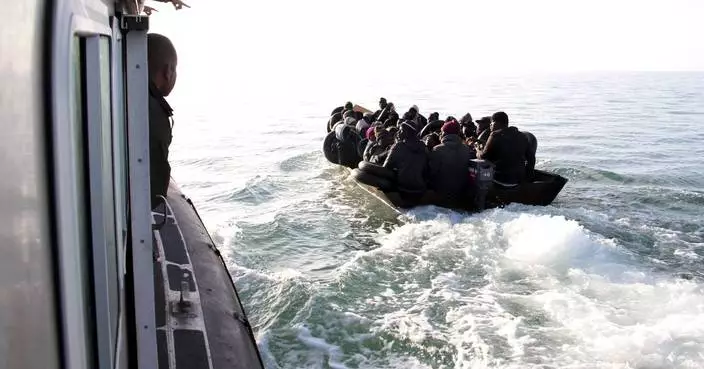Italy and Malta squabbled Friday over who was responsible for rescuing 450 migrants crowded aboard a fishing boat in the Mediterranean as the vessel, apparently not seeking help, headed toward a tiny island off Sicily.
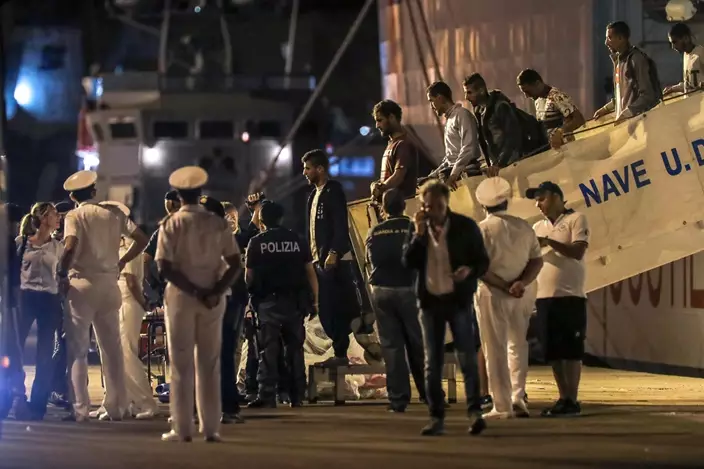
In this photo taken on Thursday, July 12, 2018, some of the 67 migrants rescued at sea by the Vos Thalassa freighter disembark from the Italian Coast Guard ship Diciotti, in the Sicilian port of Trapani, southern Italy. (Igor Petyx/ANSA via AP)
Italian Transport Minister DaniloToninelli had tweeted that Malta was obliged under maritime law to rescue the migrants since they were in the Maltese search-and-rescue area earlier on Friday and also provide the fishing boat with safe harbor.
But Malta retorted that when Rome's maritime rescue coordination center informed it about the vessel, the boat was already far closer to the tiny Sicilian island of Lampedusa than it was to Maltese shores. The Maltese interior ministry also said that persons aboard the vessel announced their intention to proceed to Lampedusa.
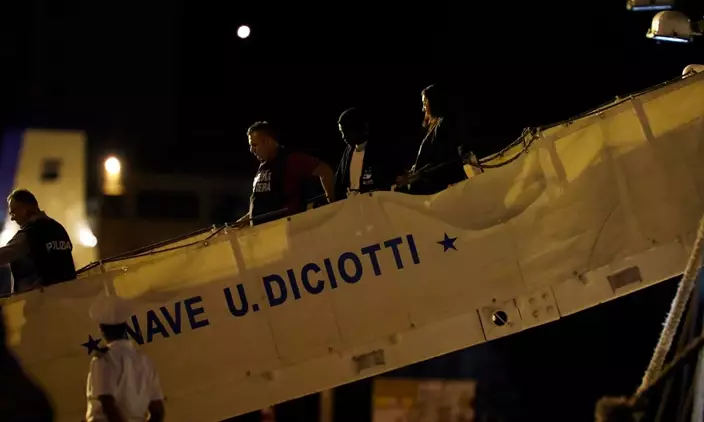
In this photo taken on Thursday, July 12, 2018, some of the 67 migrants rescued at sea by the Vos Thalassa freighter disembark from the Italian Coast Guard ship Diciotti, in the Sicilian port of Trapani, southern Italy. (Igor Petyx/ANSA via AP)
Italian Interior Minister Matteo Salvini, who's leading the new populist's government campaign to keep more migrants from reaching Italian shores, was adamant that the boat wouldn't dock in any Italian port.
"This boat cannot, must not arrive," Salvini tweeted. "We already have given, you understand." Salvini was apparently referring to the costs that Italy has incurred in the last few years caring for some 600,000 migrants who were rescued at sea and brought to Italian shores.
On Thursday, Salvini was thwarted thanks to Italian presidential intervention in his determination that 67 migrants rescued earlier in the week by an Italian tug in the waters off Libya not set foot in Italy. The tug's captain had told the Italian coast guard that the migrants were threatening the crew after it appeared that the tug would turn them over to the Libyan coast guard.
Italian prosecutors are investigation the alleged threats.
The Italian coast guard vessel Diciotti arrived in the port of Trapani, in western Sicily, on Thursday, but the migrants were kept aboard while Salvini vowed that "delinquents" among the migrants would be jailed, then expelled, leaving it unclear for hours if the other passengers would be allowed off to seek asylum.
After President Sergio Mattarella expressed humanitarian concerns about the migrants, authorities granted the Italian ship docking permission.
Salvini insists that the Libyan coast guard deal with migrants in waters off the largely lawless North African country. But U.N. officials and human rights advocates say migrants are at risk for torture, beatings, rape and other atrocities in Libyan detention centers.
Two African migrants were escorted off the Diciotti Thursday night by Italian police. The other migrants, including young children and women then came down the gangway to be taken to a center for identification.
Salvini had said a Sudanese and a Ghanaian among the migrants allegedly tried to hijack the tug so it wouldn't return them to Libya.
Italian media quoted Trapani Prosecutor Alfredo Morvillo as saying the investigation would be carried out without bowing to any political pressures. No arrests were immediately made.
In an interview with Italian radio station RTL on Friday, Salvini insisted that no more "fake refugees" would arrive, referring to the large percentage of migrants who see their asylum bid fail.
The Italian news agency ANSA quoted a social worker for UNICEF, the U.N. children's advocacy agency, and the aid group InterSos as saying the migrants recounted several minutes of "great confusion and fear." Sahar Ibrahim was also quoted as saying that migrants said they were ready to dive into the sea to avoid being sent back to Libya.
LONDON (AP) — Actor Paola Cortellesi has long been a staple on the Italian pop culture scene, mostly known for her work as a comedian. Then she turned to directing and her first feature movie, “There’s Still Tomorrow,” took Italy by storm.
The black-and-white film about an ordinary woman trapped in a toxic marriage in post-World War II Italy opened in October. The low-key drama resonated with women from all walks of life, even overtaking the global hit “Barbie” at the Italian box offices.
After its whirlwind success at home, the movie launched internationally and opens in the United Kingdom on Friday. Cortellesi was in London earlier in the week to promote “C’e’ Ancora Domani,” as the movie is titled in Italian, in which she also stars in the lead role.
With a bright smile contrasting her elegant black suit, white shirt and hoop-like black glasses, Cortellesi, 50, stopped by The Associated Press to chat about her unexpected success.
"Thankfully, the camera is high, so you don’t see my double chin,” she joked as she sat down.
Her signature mix of fun and serious talk soon became apparent as Cortellesi confessed she didn’t have high expectations for the film — monochrome cinematography and old-fashioned storylines are not popular at the box office these days.
But there was something especially captivating in the drama unfolding on the screen between Delia — the main character in “There’s Still Tomorrow,” played by Cortellesi — and that of her husband Ivano, played by Valerio Mastandrea.
“We heard of queues outside the cinema, something that never happens," Cortellesi said. “My friends started sending me pictures from all over Italy of people queuing. I heard of sold-outs."
As the revenue numbers soared, Cortellesi's interactions with the audiences at the end of the screenings brought even more satisfaction.
“They wanted to talk, to tell me a little about the story that had touched them and how this story could be about them," she said.
The movie's Delia is physically assaulted by her husband but Cortellesi also brings other kinds of abuse to light — verbal, psychological and financial — and depicts how a victim is often isolated by an abuser as a way of denigrating them further.
Modern audiences have connected with the movie, she said, because the traits of a toxic relationship are recognizably the same nearly 80 years later.
“The dynamics repeat themselves. They are the constants,” she said. “Often women do not report abuse because they are not economically independent, they would not know what to do."
It is the contemporary parallels of this tragedy that Cortellesi believes made the movie a success. A woman in an abusive relationship could maybe consider running away from this situation, but it’s not easy, especially if she has children.
“We must also understand that it’s very complicated,” Cortellesi says.
She says not only women but men, too, respond to her movie. On the day of its release in Italy, Cortellesi recounts how she was greeting the audience after a later showing and met an older man in the crowd.
“He told me, ‘I’m watching it for the second time.’ So I told him that's not possible ... it just opened today,” she recounted. "He said, ‘I was at the show before, now I’m back. I found a seat and I’m watching it again.'”
Like Delia in the movie, Cortellesi is a mother. One time, as she was reading a children's book about women’s rights to her 11-year-old, Laura, she recalls her daughter's reaction.
“She didn’t know that women had practically no rights before and so she asked me incredulously, talking about divorce, talking about abortion, talking about the vote, talking about whatever, she said ‘No, but why? Really?’ and it was wonderful to see her so amazed,” recalls the director.
“We must fight, be aware of our rights and fight to defend them,” Cortellesi added.
In taking her movie around the world, Cortellesi says she is learning how the subject of women's rights affects people in different countries in different ways — in some places, women have been emancipated longer than in Italy.
Her moment of hope?
Cortellesi said she read about young girls, as they were leaving the movie theater after seeing her film, commenting that they want to “practice freedom.”
“Their own freedom and that of others others,” she said, smiling.
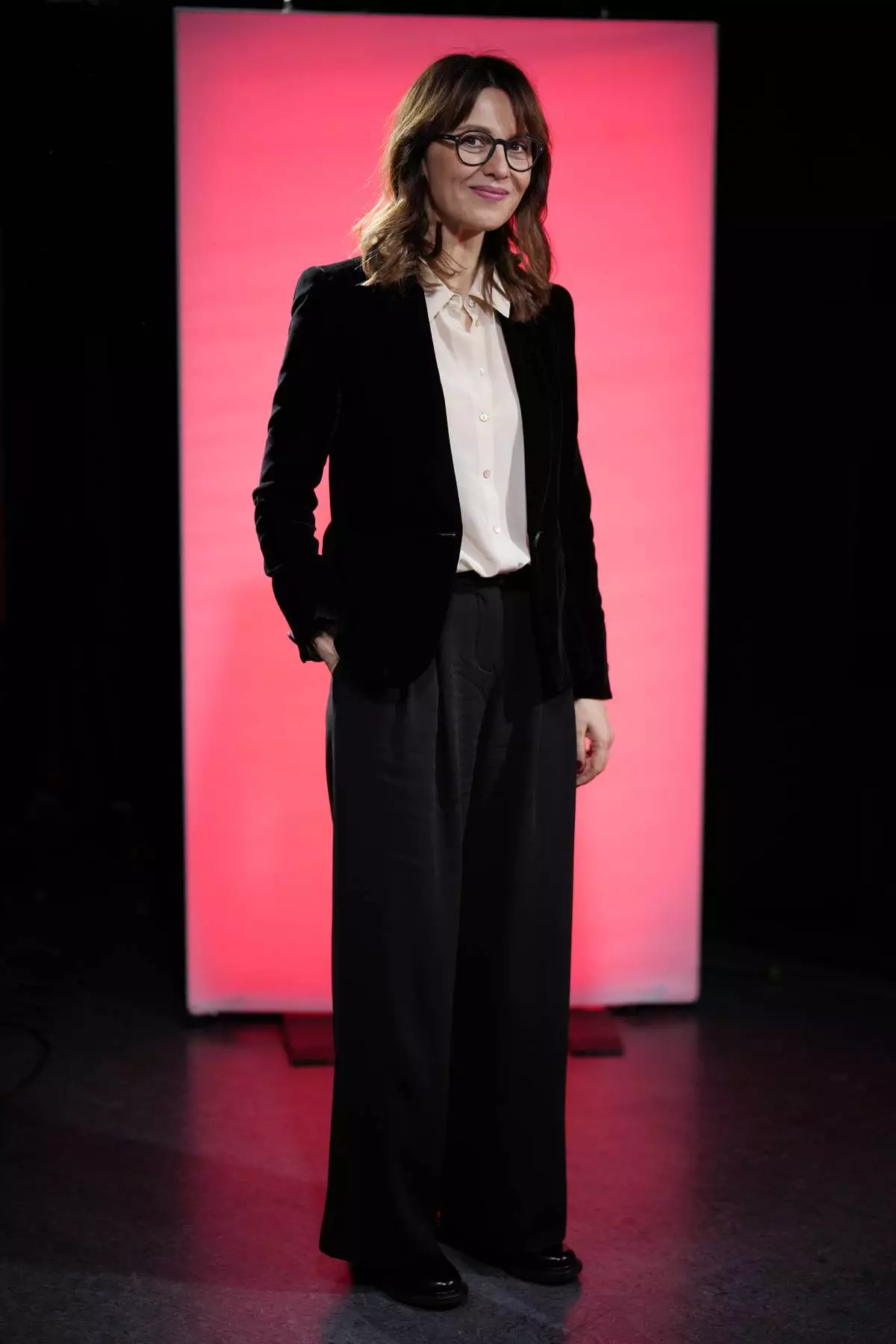
Italian director and actress Paola Cortellesi poses for a photograph during an interview in London, Monday, April 22, 2024. Paola Cortellesi is a staple of Italian pop culture known for her work in front of the camera and her talent as a comedian. Recently she took on a new challenge, directing her first feature movie titled “There’s Still Tomorrow”. The black and white movie about a woman stuck in an abusive marriage in post-war Italy, debuted in October 2023. After achieving incredible success in the motherland, where it beat global box office smash “Barbie," it is released in the U.K. Friday. (AP Photo/Kin Cheung)
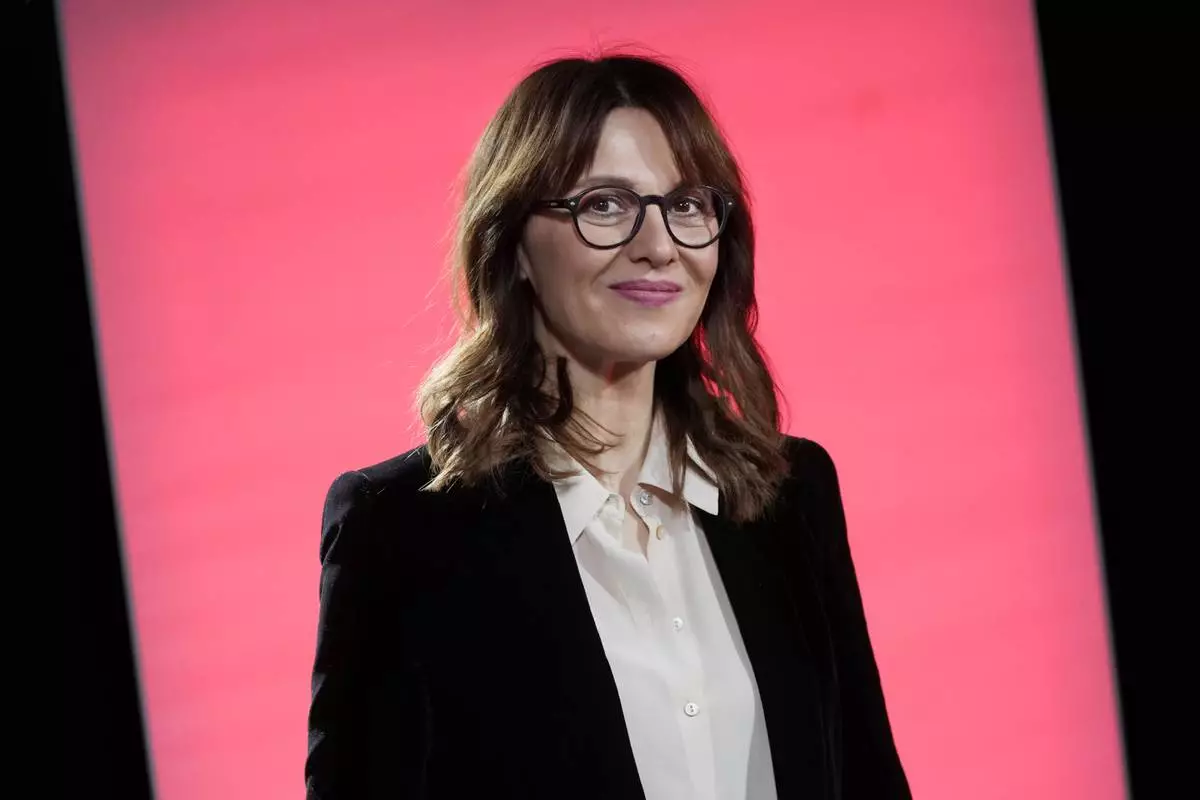
Italian director and actress Paola Cortellesi poses for a photograph during an interview in London, Monday, April 22, 2024. Paola Cortellesi is a staple of Italian pop culture known for her work in front of the camera and her talent as a comedian. Recently she took on a new challenge, directing her first feature movie titled “There’s Still Tomorrow”. The black and white movie about a woman stuck in an abusive marriage in post-war Italy, debuted in October 2023. After achieving incredible success in the motherland, where it beat global box office smash “Barbie," it is released in the U.K. Friday. (AP Photo/Kin Cheung)







